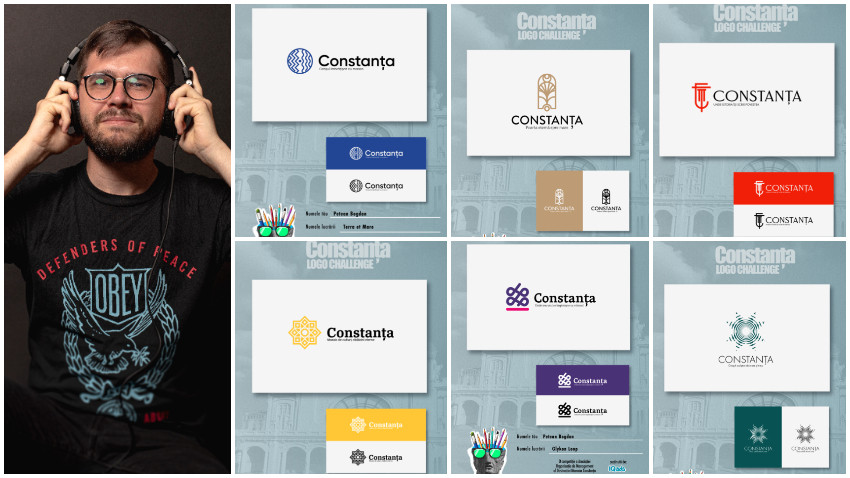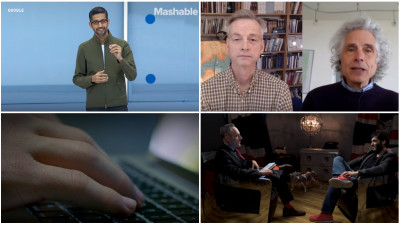Te doare un cot, de exemplu, sau in urechea stanga. E de la vreme. Nu ai dormit bine. Trebuie sa ploua. Esti anxios sau derutat. Astenia. Iti vine un chef urgent sa arunci cu toate mailurile de perete sau sa trantesti conversatiile de pe messenger. A venit frigul si cerul asta enervant de cenusiu. Bineinteles, toate astea ar putea avea legatura si cu oamenii. Chiar cei care le experimenteaza sau ceilalti, multi, care orbiteaza in nenumarate straturi sociale. Ar putea avea legatura cu multe lucruri, dar vremea e aproape si nu se supara daca dai vina pe ea. Si inca ceva: daca accepti ca vremea, culorile sau alti stimuli te influenteaza, poti sa te concentrezi si pe altceva. Pe adevaratele cauze pe care le poti rezolva, in timp ce lasi vremea sa isi faca de cap.
Da, ne afecteaza soarele si lipsa lui, griul ostil, temperaturile pe minus sau schimbarea brusca a lor. Nu, nu putem controla culoarea cerului. Dar e placut sa intelegi asta. Ca exista lucruri pe care nu poti si nici nu trebuie controlate. Ceea ce poti controla, in schimb, e felul in care raspunzi la ele.
Why Winter Makes You SAD: Seasonal Affective Disorder Explained
Ever wondered what Seasonal Affective Disorder actually is? Or if it’s even a real thing? What causes it? Kate tackles sudden changes in hormones and light intensity in an attempt to explain why winter makes you SAD.
Seasonal affective disorder - causes, symptoms, diagnosis, treatment, pathology
What is seasonal affective disorder? Seasonal affective disorder is when an individual feels depressive symptoms at the same time each year.
How the weather affects our mood
We often talk of our mood with reference to the weather: gloomy, sunny or under a cloud. But does the weather actually affect our mood?
"I'm Fine" - Learning To Live With Depression | Jake Tyler | TEDxBrighton
Jake is 31 and lives with Depression. Last year Jake embarked on a journey to manage his mental health in a new way, through exercise, sharing and the great outdoors. Jake has now walked over 2000 miles around the UK, vlogging his experiences with thousands of online followers as he goes and attracting the attention of both the BBC and the Royal Family. In this talk, Jake shares his insights into living with depression and how connecting to and opening up to a wide online community has affected his relationship with depression.
Depression is a disease of civilization: Stephen Ilardi at TEDxEmory
Dr. Stephen Ilardi is a professor of clinical psychology and the author of The Depression Cure: The 6-Step Program to Beat Depression Without Drugs. He earned his Ph.D. in clinical psychology from Duke University in 1995, and has since served on the faculties of the University of Colorado and (presently) the University of Kansas. The author of over 40 professional articles on mental illness, Dr. Ilardi is a nationally recognized expert on depression. His work has been honored by the American Psychological Association's prestigious Blau Award for early career contributions to the field, and his research on the neuroscience of depression has been funded by the National Institutes of Mental Health (NIMH).
Why you feel what you feel | Alan Watkins | TEDxOxford
Understanding why you feel what you feel is one of the most important aspects of human development. After understanding comes control. When you control your emotions through vertical development, you can be more successful and happy.
How to connect with depressed friends | Bill Bernat | TEDxSnoIsleLibraries
Can we build a bridge across the divide to reach those we care about? Comedian and storyteller Bill Bernat takes on the difficult topic of clinical depression. Depression is common, but most people are hesitant to talk to those challenged with the condition. After his own experience, Bill realized how important it was to be able to talk about his depression and have a genuine connection with another person. Bill provides tips to the “bridge-curious” on what others living with this condition might find helpful. Responsible for marketing strategy and operations for this fast-growing organization.
How to control emotion and influence behavior | Dawn Goldworm | TEDxEast
The world of scent and its influence is more powerful than you may be aware.
How the food you eat affects your brain - Mia Nacamulli
When it comes to what you bite, chew and swallow, your choices have a direct and long-lasting effect on the most powerful organ in your body: your brain. So which foods cause you to feel so tired after lunch? Or so restless at night? Mia Nacamulli takes you into the brain to find out.
How Nutrition and Biology Influence Mood Behavior, Attention and Memory - Mark Hyman, MD
Mark Hyman, MD speaks on The UltraMind Solution: An Accidental Psychiatrists Discovery of How Nutrition and Biology Influence Mood Behavior, Attention and Memory at the 16th annual A4M conference in Las Vegas, Nevada. More: In systems biology and medicine, everything is connected in the body; thus the state of ones health and well-being is highly dependent on the interplay of ones genes, lifestyle, and environment. We review the core physiological dysfunctions that underlie changes in mood, memory and attention including stress response, identify medical factors and markers that contribute to these issues, and propose how to best develop an effective treatment plan to address brain dysfunction.
Emotional responses to music | Hauke Egermann | TEDxGhent
This talk was given at a local TEDx event, produced independently of the TED Conferences. Emotional responses to music: Individual or universal?
How Colors Affect Your Mood
It’s long been rumored that colors can change your mood, but is there any truth to this?
How stress affects your brain - Madhumita Murgia
Stress isn’t always a bad thing; it can be handy for a burst of extra energy and focus, like when you’re playing a competitive sport or have to speak in public. But when it’s continuous, it actually begins to change your brain. Madhumita Murgia shows how chronic stress can affect brain size, its structure, and how it functions, right down to the level of your genes.


![[Weekend Watch List] E de la vreme](https://media.iqads.ro/2018/11/collage27-cover-850.jpg)





![[În culisele StudioSet] Bogdan Orcula: Montajul are propriul limbaj, felul în care sunt tăiate și așezate cadrele creează o anumită emoție și spune o poveste](https://media.iqads.ro/2025/02/thumbnail-bogdan-orcula-cover-850.jpg)
















